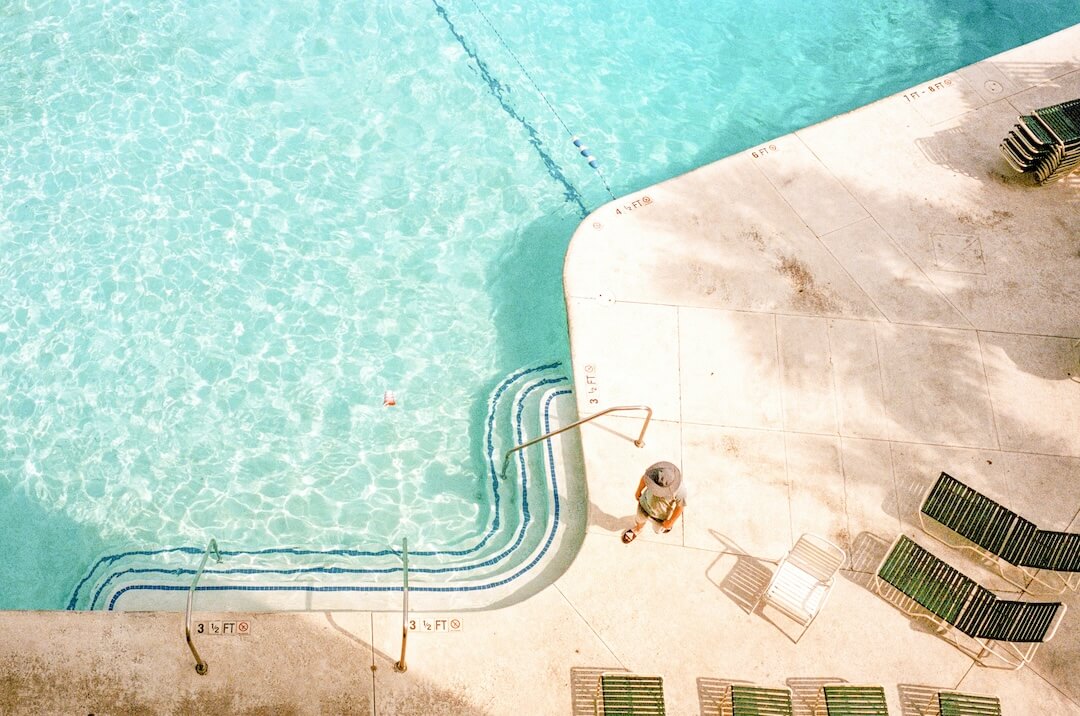How to Prevent Calcium Buildup in Your Pool

How to Prevent Calcium Buildup in Your Pool
Maintaining a pristine, clear pool in Boca Raton requires more than just regular cleaning and chemical balancing. One of the most common challenges faced by Florida pool owners is calcium buildup, also known as scale formation. This mineral deposit can cause cloudy water, stained surfaces, clogged filters, and even damage to pool equipment if left unmanaged. Luckily, with proper preventive measures and consistent maintenance, you can keep calcium levels in check and enjoy your backyard oasis year-round. Here’s a comprehensive guide on how to prevent calcium buildup in your Boca Raton pool.
Understand Why Calcium Buildup Occurs in Boca Raton Pools
In Boca Raton, the combination of warm temperatures, hard water sources, and high evaporation rates often leads to elevated calcium levels in pool water. Hard water contains high concentrations of minerals like calcium and magnesium, which can precipitate out of the water when conditions favor scale formation. As water evaporates—a common occurrence given Boca Raton’s sunny climate—the minerals become more concentrated, increasing the risk of calcium deposits on surfaces, tiles, and equipment.
Furthermore, improper water chemistry balance, especially high pH and alkalinity levels, can exacerbate calcium scaling. When pH exceeds recommended ranges (around 7.4–7.6), calcium is more likely to come out of solution and settle on surfaces. That’s why understanding water balance is critical for Boca Raton pool owners striving to prevent calcium buildup.
How to Test and Monitor Calcium Hardness Levels
Regular testing is fundamental to maintaining proper water chemistry. For Boca Raton pools, testing calcium hardness—the measure of calcium mineral concentration—is crucial. Aim to keep calcium hardness levels between 200-400 ppm (parts per million), with 225-275 ppm being ideal for most pools in Florida.
Use test strips or liquid test kits designed for calcium hardness to monitor levels weekly, especially during hot months when evaporation rates spike. Adjust your water chemistry based on test results to prevent calcium from exceeding recommended limits. If calcium hardness becomes too high, dilution with fresh water or specialized water treatment may be necessary.
Maintain Proper Water Chemistry Balance
The cornerstone of preventing calcium buildup is maintaining balanced water chemistry. This includes controlling pH, alkalinity, and calcium hardness simultaneously:
- pH: Keep pH between 7.4 and 7.6. Higher pH levels promote calcium scaling.
- Total Alkalinity: Maintain alkalinity between 80-120 ppm to buffer pH fluctuations.
- Calcium Hardness: Keep levels within 200-400 ppm to prevent mineral precipitation.
In Boca Raton, especially during dry seasons, regular testing and adjustment of chemicals is essential. Use a quality pool water test kit or work with professional pool maintenance services in Boca Raton to ensure your water chemistry remains optimal.
Use Water Clarifiers and Scale Preventers
Incorporating water clarifiers and scale prevention products into your routine can significantly reduce calcium scale formation. These chemicals work by binding calcium particles, keeping them in suspension and preventing deposits on surfaces. For Boca Raton pool owners, choosing scale inhibitors specifically formulated for hard water can be highly effective.
Apply these products as directed, typically weekly or bi-weekly, especially during peak evaporation periods or when water chemistry tests indicate rising calcium levels. Always follow manufacturer instructions to avoid overuse, which can impact overall water chemistry.
Implement Regular Pool Water Replacement and Dilution Strategies
Since high calcium levels are often driven by evaporation and water mineralization, periodic water replacement can help prevent excessive mineral buildup. In Boca Raton, where outdoor pools are exposed to full sun and heat, consider toping off your pool with fresh water regularly to dilute calcium concentrations.
If calcium levels are consistently high, a partial drain and refill using low-calcium or softened water sources can significantly reduce mineral content. Consult local water quality reports and Boca Raton water treatment specialists to find the best water supply options for your pool.
Optimize Pool Filtration and Circulation
Proper filtration and circulation are vital for preventing calcium scale. Ensure your pool’s pump and filter system are functioning efficiently, and clean filters regularly to avoid debris buildup that can trap minerals. Adequate water circulation helps distribute chemicals evenly and prevents localized calcium deposits on surfaces.
In Boca Raton, professional pool service providers can assess your filtration system, recommend upgrades, or install advanced filtration systems designed to handle high mineral content. Maintaining optimal water flow and filtration reduces the risk of scale formation and keeps your pool water crystal clear.
Use a Pool Salt System or Mineralizer
In some cases, integrating certain salt-based systems or mineralizers can help improve overall water chemistry and reduce calcium scaling. These systems help maintain stable pH and alkalinity levels, minimizing conditions conducive to scale formation. Boca Raton homeowners considering modern pool technology should consult with local pool professionals to determine the best system tailored to your specific water conditions.
Schedule Routine Professional Pool Maintenance
Preventing calcium buildup isn’t a one-time effort—it requires ongoing vigilance. Hiring a professional Boca Raton pool maintenance service ensures regular testing, chemical balancing, equipment checks, and cleaning. Experienced technicians can detect early signs of scaling and address them before they become serious issues.
Professionals can also perform scale removal treatments using specialized equipment if deposits begin to form, saving you money and preventing long-term damage to your pool’s surfaces and equipment.
Address Calcium Buildup Promptly
If you notice signs of calcium deposits—white, chalky spots on tile lines, cloudy water, or mineral buildup on pool equipment—take immediate action. Using calcium scale removers designed for pools, combined with brushing affected surfaces and increasing filtration, can help eliminate existing deposits.
Prevention is always better than cure. By actively managing your pool’s chemistry and scheduling regular maintenance, you can avoid costly repairs and keep your Boca Raton pool in pristine condition.
Educate Yourself on Local Water Conditions
Boca Raton’s unique climate and water sources influence pool chemistry. Stay informed about local water hardness levels by consulting the Boca Raton water utility reports or working with professional pool experts familiar with Florida’s water quality challenges. Tailoring your maintenance routine to local conditions ensures long-term pool health and minimizes calcium-related issues.
Final Tips for Boca Raton Pool Owners
- Regularly test and adjust water chemistry.
- Keep calcium hardness within recommended levels.
- Use chemical additives wisely to prevent scale formation.
- Maintain optimal filtration and circulation.
- Consider partial water replacement with low-calcium water.
- Schedule professional inspections and cleanings.
- Act quickly at signs of calcium buildup to prevent damage.
Maintaining a calcium-free pool in Boca Raton is achievable with consistent effort, proper water chemistry management, and professional support. A well-maintained pool not only looks beautiful but also extends the lifespan of your equipment and enhances your swimming experience. Reach out to our Boca Raton’s trusted pool care specialists today for personalized advice and expert services that will keep your pool sparkling and free of calcium deposits for years to come.



